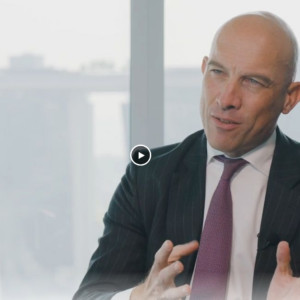What do high net worth individuals (HNWIs) really want from their wealth management service – and how much do preferences vary by age and market? Drawing on research among 272 HNWI business owners with an average wealth of $1.4m across the UK, US, Germany and India, Scorpio assesses the things that matter.
1. Personalisation – and inspiration. Standing apart as a wealth manager can be challenging. But research shows that it is the level of personalisation that really helps differentiate firms. Close to half (46 per cent) of HNWIs from around the world feel that ideas, recommendations and information that feel truly crafted around their goals and interests are the hallmark of client-centricity.
More than a third (38 per cent) want their wealth manager to stay abreast of their financial and investment needs. But they also want their chosen firm to inspire and excite them, which can only be delivered when a firm has the culture, insight and talented professionals to underpin it.
2. Effective use of their personal data. HNWIs are willing to share personal information with their wealth manager but on the proviso that it will lead to a more responsive, proactive service that really behaves like it is built around them.
Today, forward-thinking wealth managers are focused on reacting to information and coming up with ‘next best actions’ in terms of investment choices and communication. In fact, more than three-quarters of clients say that – were they a CEO of a wealth management firm – they would prioritise investment in smarter client data analysis, so product suggestions could be more tailored to their interests and advice could proactively anticipate their needs.
3. Transparency – especially around cost. HNWIs appreciate firms that believe in full disclosure. Total transparency around fees and charges is seen as extremely important as is a clear view of their own wealth and investment progress.
Clients are happy to pay for a premium service but they want to be sure what they are paying for. When asked how wealth managers will need to innovate in the future, clients primarily say firms will have to demonstrate their expertise and capabilities and reassess what they charge for.
4. A responsive primary contact. As technology gets more advanced and profit margins get more squeezed, the temptation is to shift as much client servicing as possible to lower-cost digital and automated services. But this could be a mistake. HNWIs still regard their primary human contact as the living embodiment of their wealth manager’s brand – and tend to put extremely high value on the advice, recommendations and all-round support they provide.
And once HNW clients have a contact they trust, they are willing to rely on them heavily. Forty per cent of clients globally say they interact with their primary contact monthly or more frequently. Younger clients appear to want the most first-hand contact.
5. Self-service when required.Repeatedly throughout Scorpio’s research, HNWIs want control over and access to their investments and portfolio information. From direct access to their investment profile and performance reporting (prioritised by 35 per cent) to full-enabled digital account opening (deemed important or very important by 74 per cent), HNWIs want the option to self-serve.
But the desire to self-service does vary. In Germany, only around 20 per cent of clients want direct access to their performance reporting compared to 40 per cent in India. Only 15 per cent of US-based clients profess a strong interest in online planning tools compared to 35 per cent in India.
6. Sensitive use of technology. HNWIs recognise that technology will take an increasing role in their wealth management – more than half believe that the role of the adviser will need to be augmented in the future by improved technology and digital tools.
But they do not want to be coerced into using tech. Around two-thirds are willing to use mobile apps to engage with their wealth, while a quarter are happy to consider messenger services and voice-enabled digital assistants. But chatbots and social networks are firmly out of favour.
Currently, firms seem to be getting the balance of online and human servicing right: only 11 per cent of clients complain of being pushed online when they would prefer to speak to someone, for example. But 17 per cent say they still need to speak to an adviser after going online and the same proportion say it is not easy to analyse performance data online. Plus data security remains a big concern, cited by 40 per cent of clients. So in the rush to move to digital, firms need to tread thoughtfully and keep listening to what clients really want.
Caroline Burkart is associate partner at wealth management think-tank Scorpio Partnership



